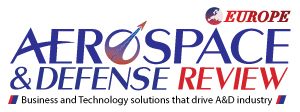As the chief operating officer, what are the different kinds of challenges that you see in the aviation space today?
There are two main challenges in the aviation industry; the environmental challenges that existed before the pandemic, like the noise and emissions caused by the aircraft, and the more recent operational challenges resulting from the COVID-19 crisis. The COVID-19 pandemic reinstated the importance of the aviation sector in global mobilisation. Although travel rates suffered a huge blow, we continued running our business to respond to the circumstantial as well as the environmental challenges by improving our operations and modernising our fleet.
Another way we responded to the environmental challenge was by equipping our aircraft with new technologies to achieve fuel economy. The newer approaches can bring almost 25 percent improvement in fuel consumption, if not more. Better fuel consumption, in turn, can result in fewer emissions than the previous generation of aircraft and cause less noise pollution. Sustainable aviation fuel, however, can be 4 to 5 times more expensive than traditional fuels. Hence, we are waiting for the introduction of more cost-effective aviation fuels.
“From a technical point of view, we aim to improve our performance with the help of predictive maintenance, with trends like big data and artificial intelligence (AI)”




-134.jpg) From a technical point of view, we aim to improve our performance with the help of predictive maintenance, by riding on the bandwagon of big data and artificial intelligence (AI). As a result, we have introduced Skywise, a platform developed by Airbus and Palantir. It uses predictive maintenance to improve how we operate and manage our fleet and save maintenance and operational costs, all while increasing passenger safety. The platform is also able to foresee a tentative timeline of a failure, prompting us to take action and fix that part immediately. That is key to achieving an extremely high level of dispatch reliability. Another trend we have financed and implemented is the airport certified employee (ACE) research to push our aircraft utilisation to more than 5000 hours per year per aircraft, which is necessary to solve the economic equation right now.
From a technical point of view, we aim to improve our performance with the help of predictive maintenance, by riding on the bandwagon of big data and artificial intelligence (AI). As a result, we have introduced Skywise, a platform developed by Airbus and Palantir. It uses predictive maintenance to improve how we operate and manage our fleet and save maintenance and operational costs, all while increasing passenger safety. The platform is also able to foresee a tentative timeline of a failure, prompting us to take action and fix that part immediately. That is key to achieving an extremely high level of dispatch reliability. Another trend we have financed and implemented is the airport certified employee (ACE) research to push our aircraft utilisation to more than 5000 hours per year per aircraft, which is necessary to solve the economic equation right now. 
![Protecting and Analyzing Data from Unmanned Platforms at the Edge of the Battlefield $box_cxo_headline_new[cxo_ids]](https://www.aerospacedefenserevieweurope.com/newstransfer/upload/745-450x308_bvd5.jpg)
![Evolving Quality Assurance and Control for Advanced Manufacturing: An Opportunity for the U.S. Leadership $box_cxo_headline_new[cxo_ids]](https://www.aerospacedefenserevieweurope.com/newstransfer/upload/450x308_t7z0.jpg)
![Time to Bring the Benefits of Coalitions to Bear $box_cxo_headline_new[cxo_ids]](https://www.aerospacedefenserevieweurope.com/newstransfer/upload/Untitled-1-450x308_67U1.jpg)
![Navigating Aircraft Maintenance Quality Challenges: Insights from a Quality Manager $box_cxo_headline_new[cxo_ids]](https://www.aerospacedefenserevieweurope.com/newstransfer/upload/156-450x308_wVm3.jpg)
![Moog's Ascendance in the eVTOL/AAM Market: Insights, Achievements, and Future Endeavors $box_cxo_headline_new[cxo_ids]](https://www.aerospacedefenserevieweurope.com/newstransfer/upload/450x308_XHxS.jpg)
![Jetsetting Journeys: A Career Soaring from JFK to Unifi's Unique Aviation Landscape $box_cxo_headline_new[cxo_ids]](https://www.aerospacedefenserevieweurope.com/newstransfer/upload/450x308_f76K.jpg)

